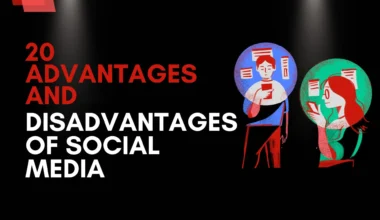Is it true that LSI keywords help boost SEO optimization? It is essential to keep the context of your content clear by using highly relevant phrases and words.
People make trillions of new searches every day to find something on the internet, so if your content carries these relevant terms and possible searches, it will help you optimize the content.
LSI keywords are normally the long tail keywords in SEO that help you rank your page on search engines. To give you a brief understanding of this powerful SEO tool that can boost the optimization of the content, we discuss it in detail in the following article.
What are LSI Keywords?
LSI keywords are usually words and phrases that seem semantically similar to a topic or primary keywords. For example, if your article is about the growing use of the internet for shopping, the LSI keywords may include eCommerce, Online stores, and shop online.
According to the SEO community, Google sees these words as relevant to the primary keyword. Keep one thing in mind: These words are not synonyms of the actual keywords; they just seem relevant, so you can not use synonyms as LSI keywords.
These keywords help give the search engines an understanding of the intent of content. However, some professionals, such as John Miller from Google, believe that there is no such thing as an LSI keyword and that whoever is talking about it is mistaken.
So, the real question is whether LSI keywords are actually terms or not. Before we solve this puzzle, let us understand the term “LSI”, or latent semantic indexing.
Truth Behind Latent Semantic Indexing
You must be aware of the latest natural language processing or NLP; latent semantic indexing is also an NLP technique developed in 1980. LSI is a technical and complicated term due to its mathematical background, so we won’t be discussing that to make you confused.
Simply put, the technique was developed to solve how a specific page gets indexed on Google and how users use similar queries to search that content.
It is a fact that internet surfers do not use the same queries to search for content on which the information sought has been indexed. Let’s discuss an example to understand this concept.
Suppose the wifi is down, and you have to find out the month or exact when the summers end and fall starts; so if you start looking in the dictionary by searching the word “fall”, you will probably find the wrong information because in the dictionary falls means something else.
So you look for another word for the fall season, “ autumn”, to find the right answer. So fall is the synonym and polysemic word for autumn.
Similarly, write “Apple” on Google. It will show you images and content relevant to Apple computers and mobiles instead of Apple as a fruit, as the search engine cannot distinguish between relevant and polysemic terms and their extensive use in local languages. LSI keywords are here to solve this problem.
How LSI Keywords Help Search Engines to Present the Right Output
As we have discussed, search engine algorithms do not know anything about the everyday use of each word. They only carry the information we feed them, and it is impossible to tell everything to a computer to make it highly intelligent in the everyday use of each word and phrase in the word.
For example, a computer does not know the difference between big, large, and small or short. So here is the deal!
LSI keywords help the algorithm understand the use of different words and phrases in the content. For example, seal is a polysemic word for adhesive strip and is also the name of a marine mammal.
To solve this issue, LSI keywords use complex mathematical formulas to generate a relationship between words and phrases in a set of documents.
It will create a set of documents on adhesives by using both words, seal and adhesive strips, as you can see below. The machine will learn the word seal is an alternative and synonym for the adhesive strip.
Secondly, different words in this document, such as letters, adhesive strips, stamped, adhesive, and secured, are semantically relevant.
Third, there is another set of documents based on marine mammals, including the words seal, will tell the machine that seal semantically belongs to two different sets of words, as you can see below:
Search engines will use this information to find the correct answer for your search queries, for example, if you find “best seal for letters”, it will show you the name of letter wax or wax strips to close the letter instead of seal as a marine mammal.
How to Find Semantically Related Terms to Use as LSI Keywords
You must conduct intensive research to find the right LSI keywords to optimize your content. We have enlisted some of the popular tools to find the right LSI keywords. It is very easy to find these free keyword generators.
- Google Autocomplete: It is the most simple way to find the relevant keywords. All you have to do is type your target keyword and let Google autocomplete complete the phrase by using different words. It provides a list of suggestions highly relevant to your website or the intent of your content. As you can see in the following image, autocomplete offers you different phrases that can be used as LSI keywords to keep the intent loud and clear.
- Use Commonly Used Words and Phrases: Whenever planning the content and keywords for any page, use common sense to incorporate different commonly used phrases and words into the content. For example, if you are writing an article about digital marketing, you must include the terms scams, frauds, and data stealing, as they are part of the discussion.
- Google Searches: Type your primary keywords and press search. You can find out the relevant keywords by going through Google-related searches at the bottom of the page.
- LSI Keyword Generator: Some tools are available to help you search for LSI keywords. These tools do not provide the exact LSI keywords. They just pull out related words or places, names of personalities, or other phrases relevant to the keyword.
Impact of LSI Keywords on SEO
LSI keywords are semantically related keywords that can help make several SEO improvements, such as:
- Google crawlers scan the pages to find the main keywords and related words in the content to understand the intent and topic of the content and what this content is about. LSI keywords play a crucial role in helping the crawler to build a deeper understanding of the page.
- Google algorithms are smart enough to distinguish between figurative and literal expressions. They can read the website contextually and categorize different keywords depending on their meaning and context. So the LSI keywords provide more relevant content to make the content clearer.
- It enables search engines to show exact or more relevant results to search queries. LSI keywords help Google understand different phrases and terms that often occur together in the content. This helps Google scan the overall page to get to the main topic.
- Moreover, search engine algorithms will see the overall picture of your business, its name, the industry you serve, your audience, the type of services or products you offer, and how the content relates to your business.
Final Words
As some people claim, LSI keywords do not exist. However, semantically related phrases and terms do, and they can play a vital role in boosting SEO ranking. It is very essential to use these keywords where they are needed or ready to make sense. You cannot randomly sprinkle them in your content. Similarly, do not overuse them in the content by keeping the reader’s experience smooth and effective. Try to create content that is easy to read and understand for readers and search engines. Relevancy is the Goal!







